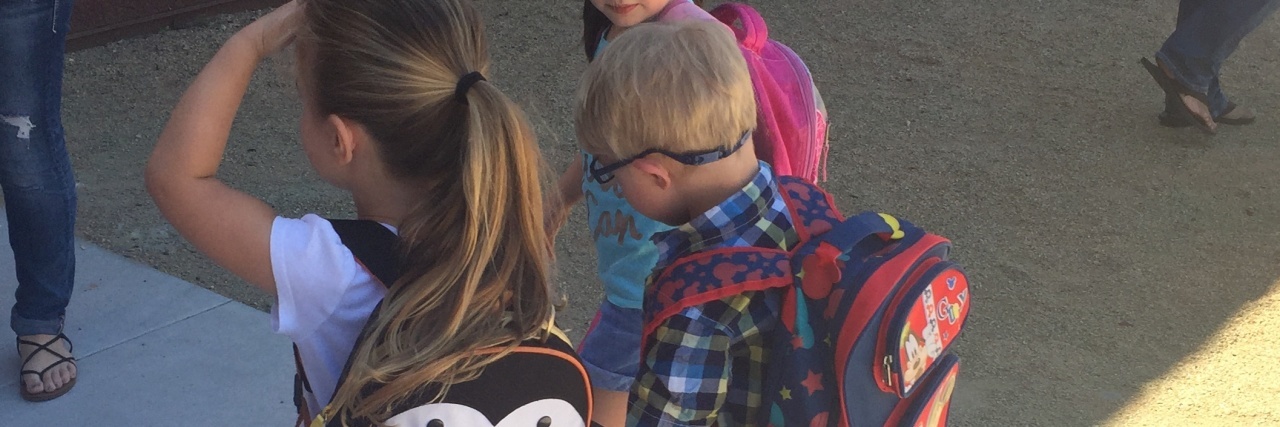As a kid, I did not know one person with Down syndrome, not one person. By the time I was an adult, I had had zero interactions with a person with Down syndrome. I had heard about Down syndrome, but I had no idea what it was or what it meant. My son was the first person I knew with Down syndrome.
During my son’s first week of kindergarten, I nervously went into his classroom to talk about Down syndrome and how he may do some things differently, but most importantly, I wanted his class to understand how he was more like them than he was different. Those kindergarteners showed me that day, and every day since, that they see my son as a friend. Plain and simple.
When kids grow up understanding differences are something to be celebrated and that we are all more alike than different, they are less likely to fear people who are different from them. Less fear equals more acceptance and inclusion for all. Down syndrome isn’t something that prevents a meaningful life. In fact, I’d argue that Down syndrome makes life more meaningful. I know it has for my family.
Imagine a hospital room, where parents of a newborn baby with the most adorable smile and squishy arms and legs just received a diagnosis of Down syndrome. The father of the baby immediately thinks about his friend from school who also had Down syndrome. He remembers he was kind, worked hard, had the best sense of humor and loved to make his friends laugh, “Our little boy is going to be great; he is something to celebrate! We are lucky to have him in our lives.” Those parents will have a positive connection and believe in their son and raise him with high expectations and a lot of love.
This is the ripple effect of inclusion. If a peer in my son’s class has a child with Down syndrome in the future, they will remember my son and see their baby as capable and a gift. My son is helping to change the future of the world just by working hard and teaching his peers that Down syndrome isn’t something to be feared. Differences are a beautiful part of life, and all individuals have their own unique talents and gifts.
When we first started on our inclusion journey, we wanted inclusion for our son because we knew it was best for him. I also knew it would be beneficial for his peers, but I didn’t understand the magnitude of what my son is doing to help change the world by shaping his peers’ perceptions. Many times this year, I have seen his classmates show kindness, empathy and understanding. They naturally slow their pace to accommodate his slower pace. They talk to him same as they do all their other friends, regardless of how he responds. They help and include him.
Inclusion is truly a win-win. When my son started the school year, he was unsure of his abilities. Recently, he read his sight words in front of his class, loud and clear. This accomplishment is the result of increased self-confidence, pride in his work and that he feels included in his class. The more confident individuals with Down syndrome are, the more likely they will be to engage with their community and share their full potential.
A truly inclusive world in the future begins with more inclusive experiences now. Inclusion creates a ripple effect that benefits not only the person being included, but also shapes the perceptions of their peers, now and in the future — which can change cultural perceptions. When we start viewing differences as unique gifts, a truly inclusive world is possible.

